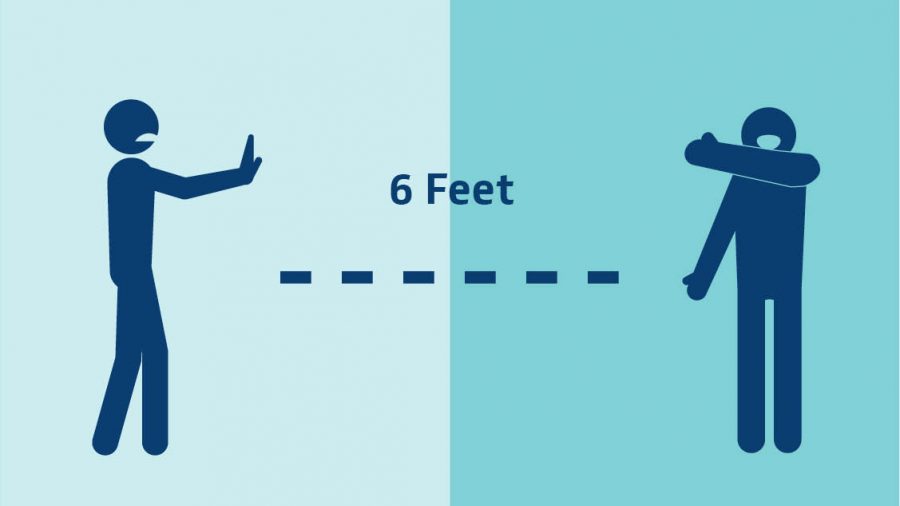Coronavirus: Hope in the Midst of Isolation and Turmoil
April 7, 2020
Currently, the world has been facing a deadly pandemic, more commonly known as Coronavirus. As Johns Hopkins University puts it, the virus is not a living organism, but actually a “protein molecule (DNA) covered by a protective layer of fat, which, when absorbed by cells, changes their genetic code.” Patients affected usually experience symptoms such as shortness of breath, nausea, sore throat and more. With its deadly physical effects come other mental and psychological effects.
In response to the outbreak, Trump and state governors have gradually restricted large social gatherings week by week: one week permitted no more than 50 people to assemble. Now it’s no more than two. Trump has held almost daily press conferences that address the virus and provide up-to-date information that scientists and disease specialists uncover. In one of these conferences, they advised everyone to partake in a nationwide social distancing event that is supposed to slow the spread of the virus by keeping people from gathering.
This virus has affected each generation quite differently; high school seniors were denied their last milestones in high school; students studying abroad in college were forced to return home and self-quarantine. Jobs have become difficult to find; stock markets have gone into a depression and have even reached a trough. Most importantly, healthcare workers in the front lines have dealt with no sleep, long shifts, deathly ill patients, hardly any PPE, and more issues for weeks.
Social distancing is something that not many humans are accustomed to. Usually, every day life is filled with dozens of interactions with others, whether it be work or school related, or even when out grocery shopping. Socializing is a large factor in what is necessary for humans to survive. Now that schools are closed for the rest of the semester and people are working from home or have been laid off, people have been struggling even more during these times.
No one knows the right answer or has a magic fix for all of this, which makes the process of trying to slow the spread even more difficult. So everyone’s miserable; not just those dealing with the disease upfront. Those in quarantine are bored out of their minds being confined to the house, except for sparse grocery shopping and getting fresh air outside. Not seeing others face to face seriously has a huge impact on the mind. With today’s technology, though, people can still text and Facetime, and even use a new platform called Zoom. But now more than ever, screen time has risen probably, on average, higher than ever before because people are so bored. The rising screen time has a huge negative effect on the mind, so some people try to counteract that growing screen time by trying out new recipes, exercising, and more.
As a high school junior, I can say that all of this has taken a toll on me, as it has everyone else. It’s not easy avoiding contact with others, but it is what we have to do in order to fight the virus off. As I write this piece, I realize how society is forced to change, just like in the education department. Online schooling has been rough, especially for me because I tend to learn better face to face as opposed to learning online. Teachers and students have been working together to figure out the mess we are in so we don’t fall off of our education track.
In all, I believe that this virus has not only brought on many fatalities and stress, but also mental struggles, like dealing with no in person interactions and an overload of screen time. If we all push through and listen to the experts, hopefully this will subside sooner rather than later and normal life can resume.


